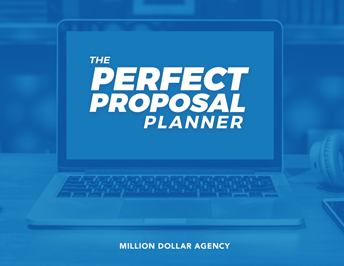The Sixth Commandment of Agency Ownership

Thou Shalt Plan Client Wins in Advance and then Work the Plan
You use processes to get your clients from point A to point B. That’s why planning client wins in advance then working your plan is so important.
Your aim is to engineer effectiveness in your agency.
To do that, you need to start process building with the end in mind. That means identifying what a win looks like for your client and then working backwards.
What steps do you need to follow to get to that win?
Those steps create processes, which allow you to plan wins in advance. However, many agency owners don’t do this. They take a reactive approach that leads to them constantly putting out fires instead of following a defined plan.
The Symptoms
Are you allowing clients to take control of your processes to get their wins?
If so, you’re not planning wins in advance. Think of it like driving a car. The client doesn’t want to have to keep reaching for the wheel to steer you in the right direction.
They want to sit in the back seat and let you get them to their destination.
The other symptom is that you become just a vendor to the client. You’re not guiding them to the win anymore. Instead, they’re just placing orders that you deliver on.
That’s a problem because it means you’re not an expert anymore. You’re just a service provider. Again, the client has control over the relationship, which isn’t what they want.
They want you to know what processes to follow to get the wins without their constant involvement.
The Root Cause
The reason that so many agencies fall into this routine is that they don’t sit back and plan on a regular basis.
Specifically, they don’t plan with the end in mind. They’re thinking about the next task instead of the end game.
That means there’s no long-term thinking. They’re thinking about how to keep the lights on today rather than about how to keep the client for the next two or three years.
Why You Should Fix the Issue
The idea behind this commandment is to ensure that your clients know what to expect in advance.
You don’t want to be the client’s monkey. By that I mean you don’t want the client dictating what’s a priority and what isn’t.
Instead, you need to establish what you’re going to do and what that’s going to achieve.
By following this commandment, you can present clients with a full plan. You can say “This is where we’re heading and this is what you can expect.”
The client no longer needs to grab the wheel constantly. Thus, you no longer have to take a reactive approach where everything is an emergency.
Dev “Winning in Advance” Basu


